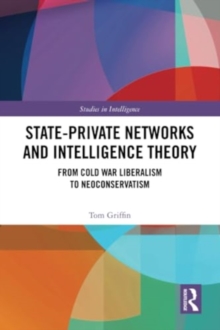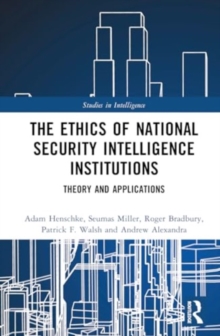
Understanding Intelligence Failure : Warning, Response and Deterrence EPUB
by James Wirtz
Part of the Studies in Intelligence series
EPUB
Description
This collection, comprising key works by James J. Wirtz, explains how different threat perceptions can lead to strategic surprise attack, intelligence failure and the failure of deterrence.
This volume adopts a strategist's view of the issue of surprise and intelligence failure by placing these phenomena in the context of conflict between strong and weak actors in world affairs. A two-level theory explains the incentives and perceptions of both parties when significant imbalances of military power exist between potential combatants, and how this situation sets the stage for strategic surprise and intelligence failure to occur. The volume illustrates this theory by applying it to the Kargil Crisis, attacks launched by non-state actors, and by offering a comparison of Pearl Harbor and the September 11, 2001 attacks. It explores the phenomenon of deterrence failure; specifically, how weaker parties in an enduring or nascent conflict come to believe that deterrent threats posed by militarily stronger antagonists will be undermined by various constraints, increasing the attractiveness of utilising surprise attack to achieve their objectives. This work also offers strategies that could mitigate the occurrence of intelligence failure, strategic surprise and the failure of deterrence.
This book will be of much interest to students of intelligence studies, strategic studies, security studies and IR in general.
Information
-
Download - Immediately Available
- Format:EPUB
- Pages:174 pages
- Publisher:Taylor & Francis
- Publication Date:10/11/2016
- Category:
- ISBN:9781317375722
Other Formats
- Paperback / softback from £42.45
- Hardback from £135.00
- PDF from £39.59
Information
-
Download - Immediately Available
- Format:EPUB
- Pages:174 pages
- Publisher:Taylor & Francis
- Publication Date:10/11/2016
- Category:
- ISBN:9781317375722










